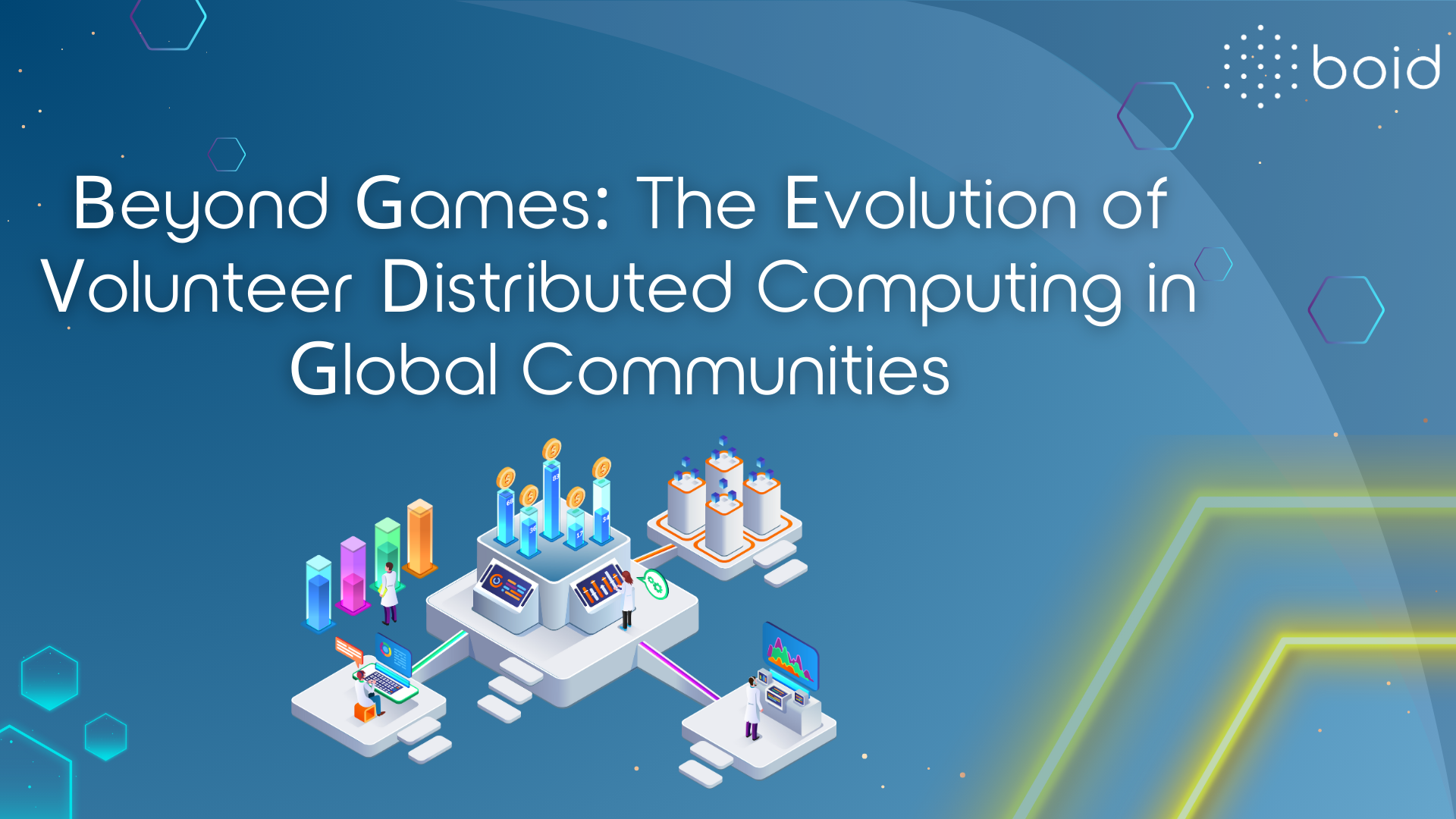Beyond Games: The Evolution of Volunteer Distributed Computing in Global Communities

In an increasingly interconnected world, online communities are not just gathering for video games and entertainment; they are also playing a fundamental role in addressing some of humanity's most pressing challenges. The evolution of volunteer distributed computing in these global communities is transforming the way we tackle scientific, medical, and social issues.
Volunteer distributed computing is a concept that involves harnessing the processing power of thousands or even millions of networked computing devices. Each device typically contributes its unused computing power to perform computationally intensive tasks. This massive collaboration enables us to address problems that would require significant processing power, such as scientific research, data analysis, simulations, and more.
Volunteer distributed computing had its beginnings in the world of video games. Projects like SETI@home allowed gamers to donate part of their computer's power to analyze radio signals from space in search of possible signs of extraterrestrial life. This pioneering initiative demonstrated that the gaming community was willing to use their computing power for scientific purposes.
As technology advanced, volunteer distributed computing moved beyond its gaming origins and began to address broader challenges. One of the most notable examples is Folding@home, which focuses on medical research, particularly in simulating how proteins fold. This research is crucial for understanding diseases such as Alzheimer's, Parkinson's, and certain forms of cancer.
Another significant example is the Rosetta@home project, which is dedicated to predicting and designing protein structures. This project has played a crucial role in the development of vaccines and treatments, including those related to infectious diseases like COVID-19.
Volunteer distributed computing is not limited to scientific and medical projects. It has also proven valuable in addressing humanitarian and social challenges. Online volunteer communities have contributed to projects ranging from DNA sequencing to better understand rare diseases to the search for missing persons and document translation for nonprofit organizations.
As volunteer distributed computing technology has evolved, it has become more accessible and versatile. Platforms like BOINC (Berkeley Open Infrastructure for Network Computing) have enabled the creation of a wide variety of projects that address a range of issues.
The evolution of volunteer distributed computing from its gaming origins to scientific, medical, humanitarian, and social challenges highlights the power of online communities to create a positive impact on the world. As this technology continues to grow and mature, it is exciting to consider the possibilities it offers for addressing our society's most pressing problems. Global collaboration, fueled by the passion and generosity of online communities, is driving a future where volunteer distributed computing is a powerful force for change.

